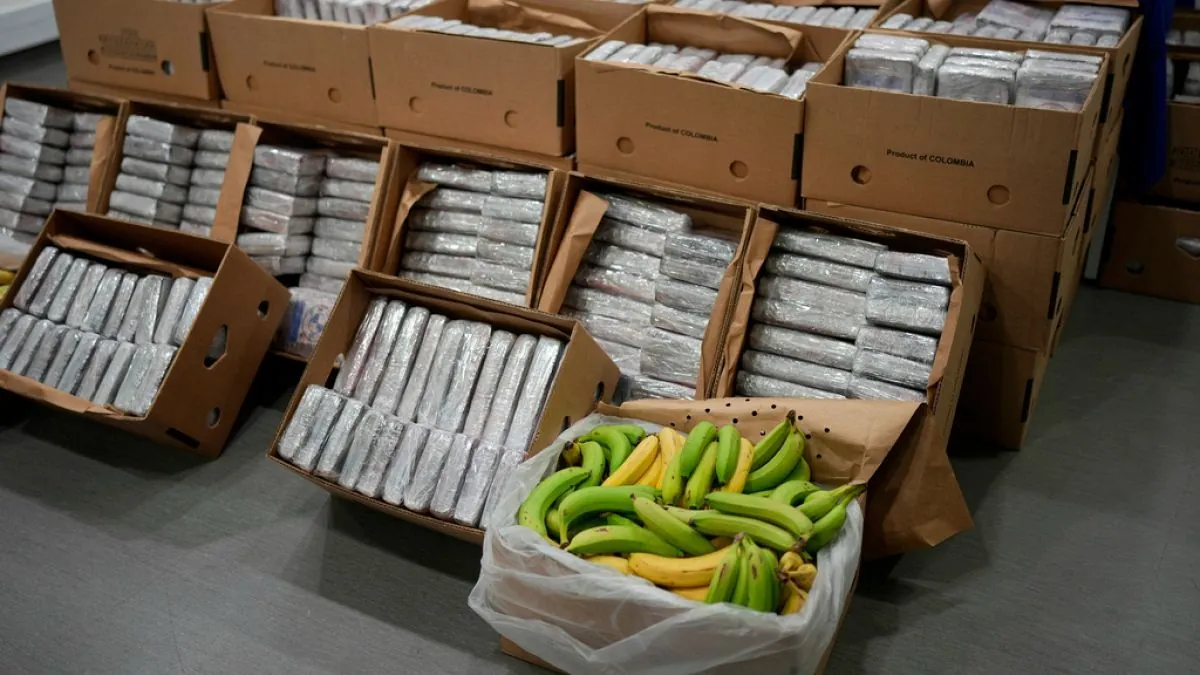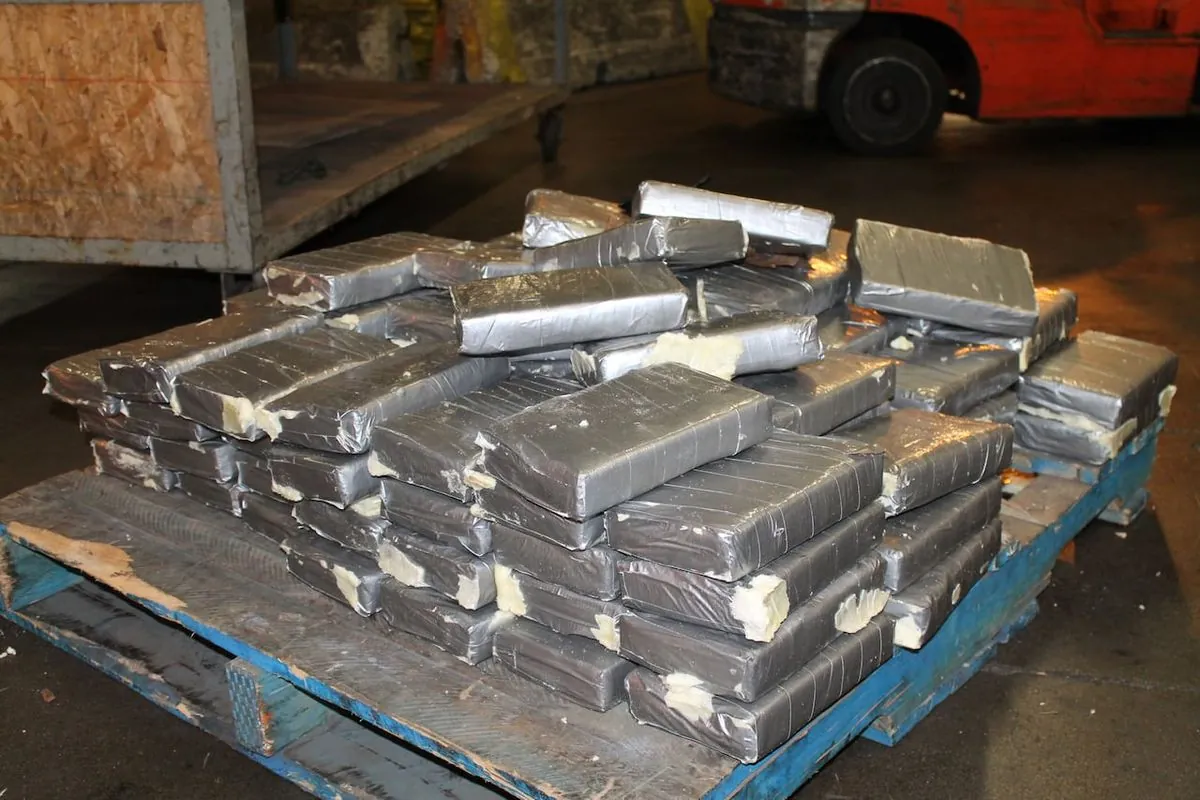Greek Authorities Seize Million-Euro Cocaine Haul in Banana Shipment
Greek coast guard confiscates cocaine worth over €1 million hidden in a banana container at Piraeus port. The operation, assisted by U.S. officials, highlights ongoing efforts against drug trafficking in Europe.

Greek law enforcement officials have intercepted a substantial cocaine shipment at Piraeus, the country's largest port, in a joint operation with U.S. authorities. The seizure, valued at more than €1 million, occurred on August 7, 2023, demonstrating the ongoing challenges in combating international drug trafficking.
The illicit substances were cleverly concealed within a sea container transporting bananas from Ecuador, the world's leading banana exporter. Authorities discovered approximately 35 kilograms of cocaine, divided into 30 packages and hidden within the container's cooling system. This method of concealment highlights the sophisticated techniques employed by drug traffickers to evade detection in legitimate cargo.
The successful operation was a result of collaboration between Greek officials and the Homeland Security Investigations unit of the U.S. embassy in Athens. This international cooperation underscores the importance of cross-border efforts in addressing transnational drug trafficking, a global industry estimated to be worth around $150 billion annually.

This recent seizure is part of a broader trend of increasing cocaine trafficking in Europe. Over the past decade, South American cocaine production has surged, with Balkan traffickers playing a significant role in distribution. Consequently, Europe has emerged as the world's largest cocaine market, with an estimated annual value exceeding €10.5 billion.
Greece's strategic location makes it a key transit point for drug trafficking, particularly along the Balkan Route. The country has been intensifying its efforts to combat this issue. In May 2023, Greek authorities dismantled an international criminal group involved in cocaine trafficking from Latin America to Europe. Shortly after, they confiscated over 109 kilograms of cocaine hidden in a frozen squid shipment at the same port.
The use of maritime trade routes for drug smuggling remains a significant challenge due to the high volume of container traffic. Drug trafficking organizations often exploit refrigerated containers, known as reefers, to conceal their illicit cargo. The United Nations Office on Drugs and Crime reports that cocaine production reached record levels in 2020, further complicating enforcement efforts.
As cocaine seizures in Europe continue to rise, so does the purity of the drug in the region. This trend, observed over the past decade, indicates the increasing sophistication of drug trafficking networks and the need for continued vigilance and international cooperation in combating this global issue.
"The successful seizure of this significant quantity of cocaine demonstrates our commitment to disrupting drug trafficking networks and protecting our communities. We will continue to work closely with our international partners to address this ongoing threat."
The recent operation at Piraeus port serves as a reminder of the persistent challenges faced by law enforcement agencies in their fight against drug trafficking. As criminal organizations continue to evolve their methods, the importance of international collaboration and innovative detection techniques becomes increasingly evident in safeguarding public health and security.


































